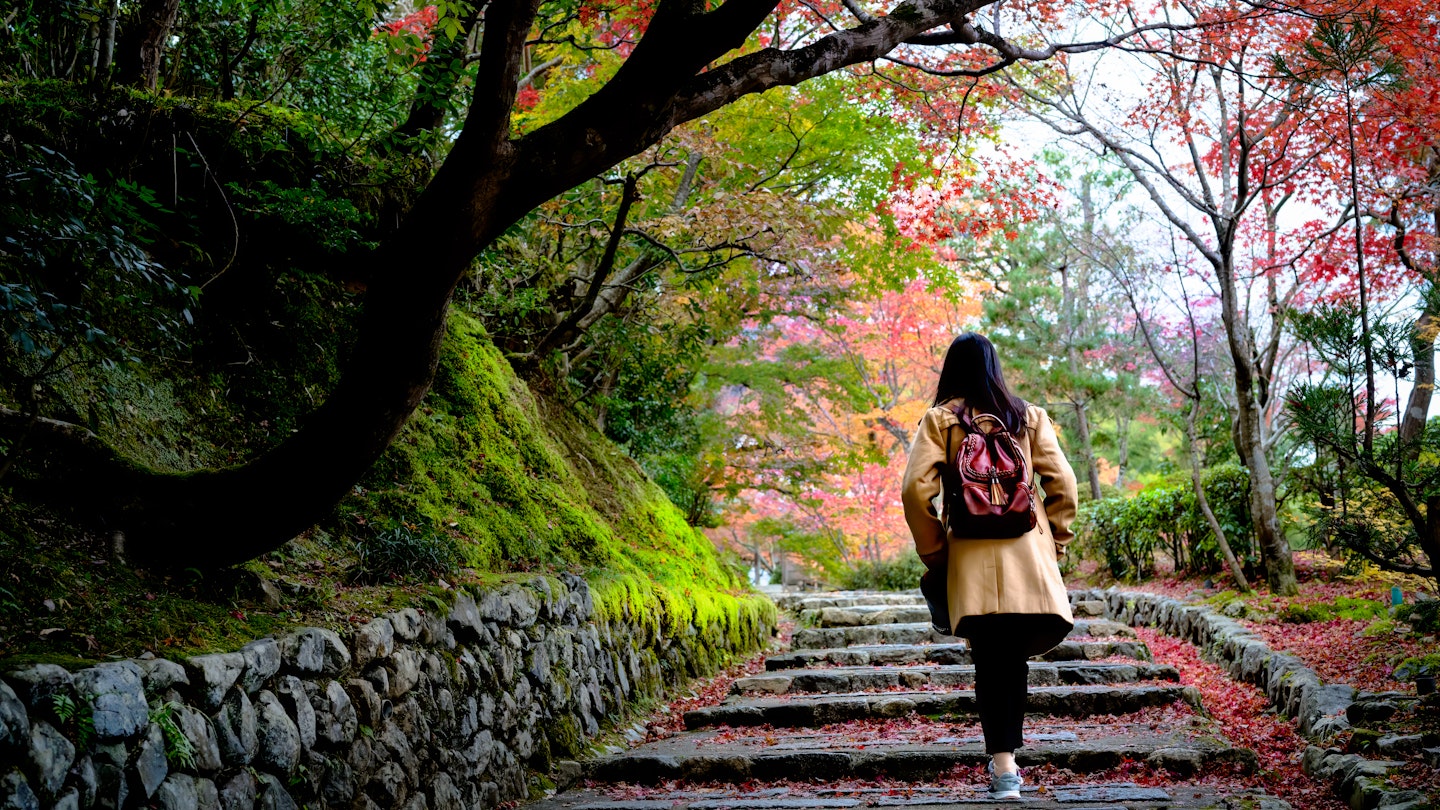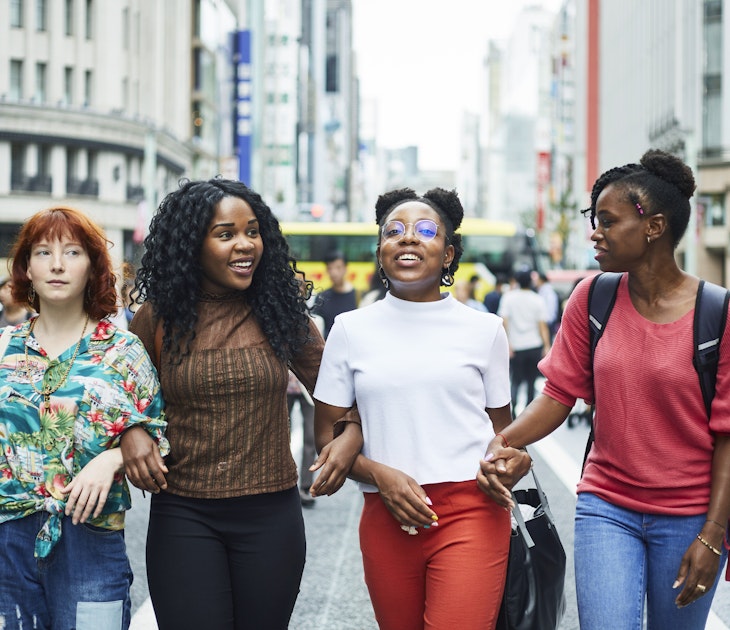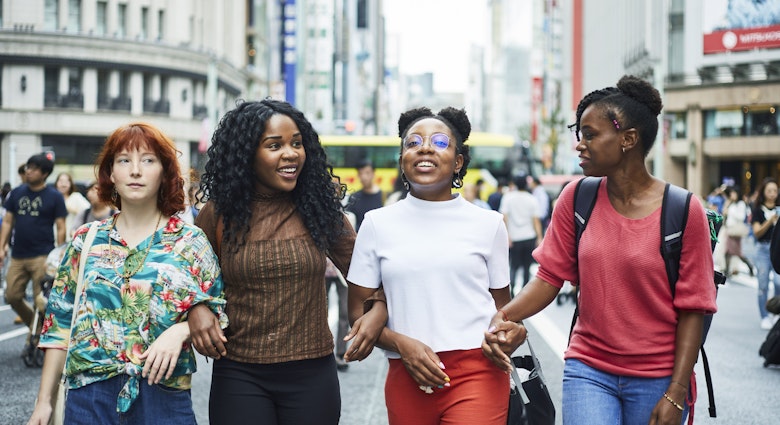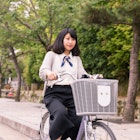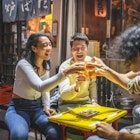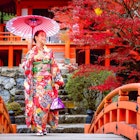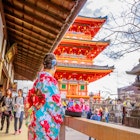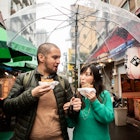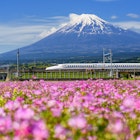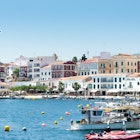Like a maiko (apprentice geisha), who has a different hairpin for every month of the year, Kyoto is highly attuned to the seasons – and your travel plans should be, too. Make the most of your time here by seeking out the experiences and tastes that define each season, from winter snows to spring cherry blossoms.
The city's famous traditional Japanese architecture looks great in all types of weather, but there's something especially wonderful about viewing Kyoto's temples in the snow. Factor in Kyoto's full calendar of festivals and sophisticated food scene, and it's always a good time to visit. Here's our guide on the best times to go.
Come in low season (mid-December to February) for snow-covered temples and peaceful exploration
Winter is a quiet time in Kyoto. Cold temperatures keep most visitors away, but the city has plenty of winter charm. It occasionally snows in January and February, and the blanket of white adds a magical quality to temples such as Kinkaku-ji. After sightseeing, soaking in the relaxing waters of an onsen (hot spring) is the perfect way to ward off the winter chill.
Winter visitors will have more choice of accommodations and can take advantage of lower rates and off-season discounts. If you’re in Kyoto over the New Year holiday, bear in mind that many restaurants, shops, museums and similar businesses close from around December 29 to January 3 for Ōmisoka (the last day of the year). However, visiting one of the city’s big temples on New Year’s Eve is definitely a memorable way to mark the occasion.

Shoulder season (June to September) is the best time for festivals and cultural events
Summer is festival season in Kyoto with a packed calendar of unforgettable celebrations. The biggest of these is Gion Matsuri, which features lively street parties and colorful parades where performers pull huge wooden floats through downtown. The summer weather is hot and muggy, and June and July see frequent rain showers, but the city’s Japanese gardens, including the lush moss garden at Giō-ji, are at their verdant best after these downpours.
The heat and humidity tend to keep the crowds at bay during the summer, with the exception of key events and festivals, making this a good time to explore Kyoto's diverse neighborhoods. The O-Bon holiday in August is another peak time for domestic travel, and accommodation rates often spike during this week.
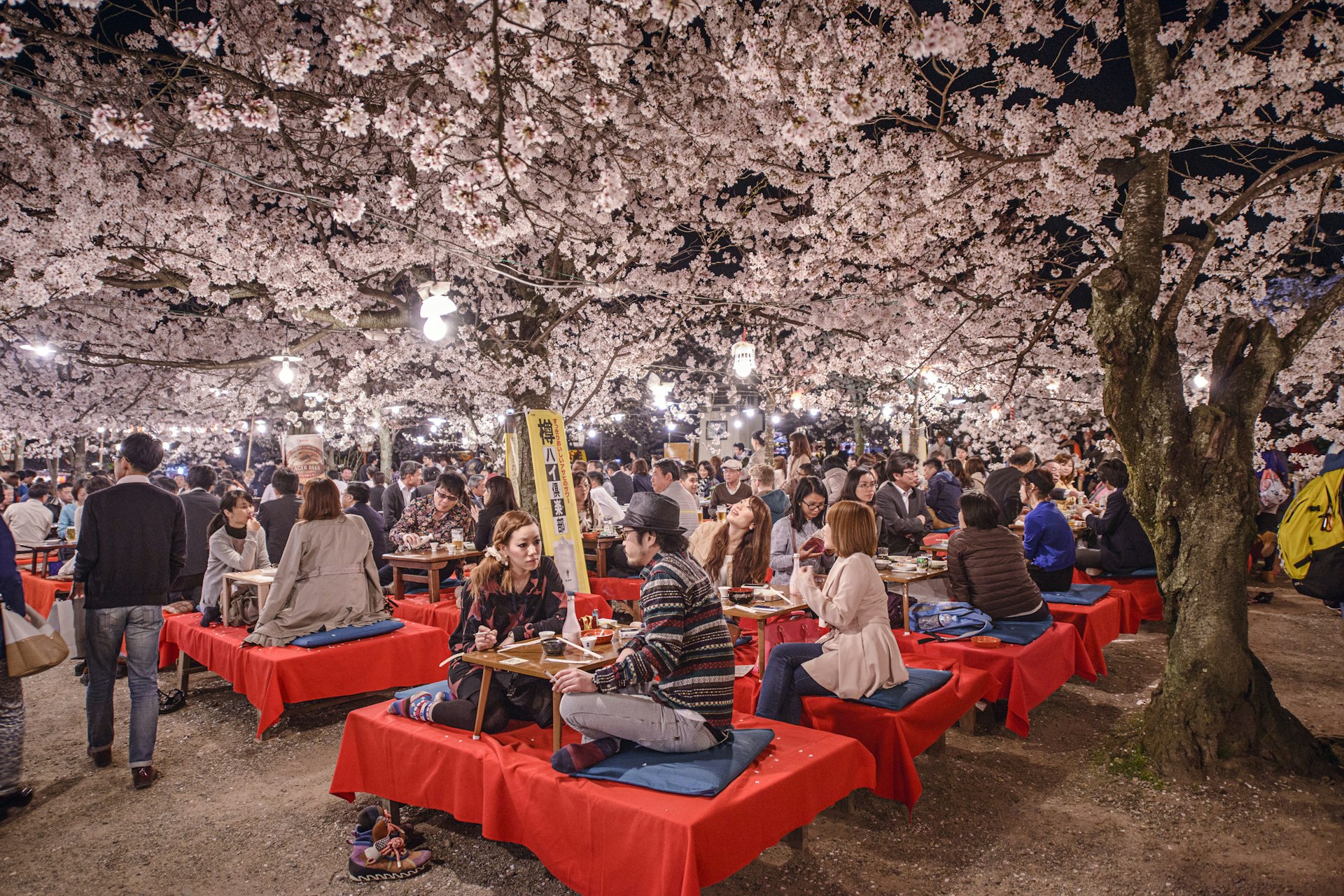
High season (March to May and October to mid-December) brings cherry blossoms and fall foliage
Kyoto’s peak travel periods are aligned with the cycles of nature, with the spring cherry blossoms and fall foliage both attracting huge numbers of domestic and international visitors. So long as you don’t mind crowds, traveling during these colorful seasons allows you to experience Kyoto at its prettiest and also to enjoy the best weather. Both spring and fall see comfortable temperatures and pleasant conditions that are perfect for exploring the city or hiking in the nearby mountains.
The sakura (cherry blossom) season usually begins in late March or early April, transforming the city into an ethereal sea of pale pink flowers. It's a stunning sight to behold, and crowds descend on Kyoto's sublime gardens and parks to admire the ephemeral display. Some of the most beautiful locations for hanami (flower viewing) include Maruyama Kōen, the Path of Philosophy and Heian Jingu, but be aware that these spots get very busy. Accommodations are at their most expensive, and you’ll normally have to book a year or so in advance.
Kyoto explodes into color again come fall, when the city's maples and other deciduous trees change to the deep reds, brilliant golds and fiery oranges of autumn. Peak kōyō (fall foliage) season is from mid-November to early December, with temples staying open late into the evening for special illumination events. Head to Eikan-dō, Tōfuku-ji or Kiyomizu-dera for the most vibrant displays, but be prepared to share them with a crowd. Accommodation costs are higher at this time of year, too, and reservations need to be made several months in advance.
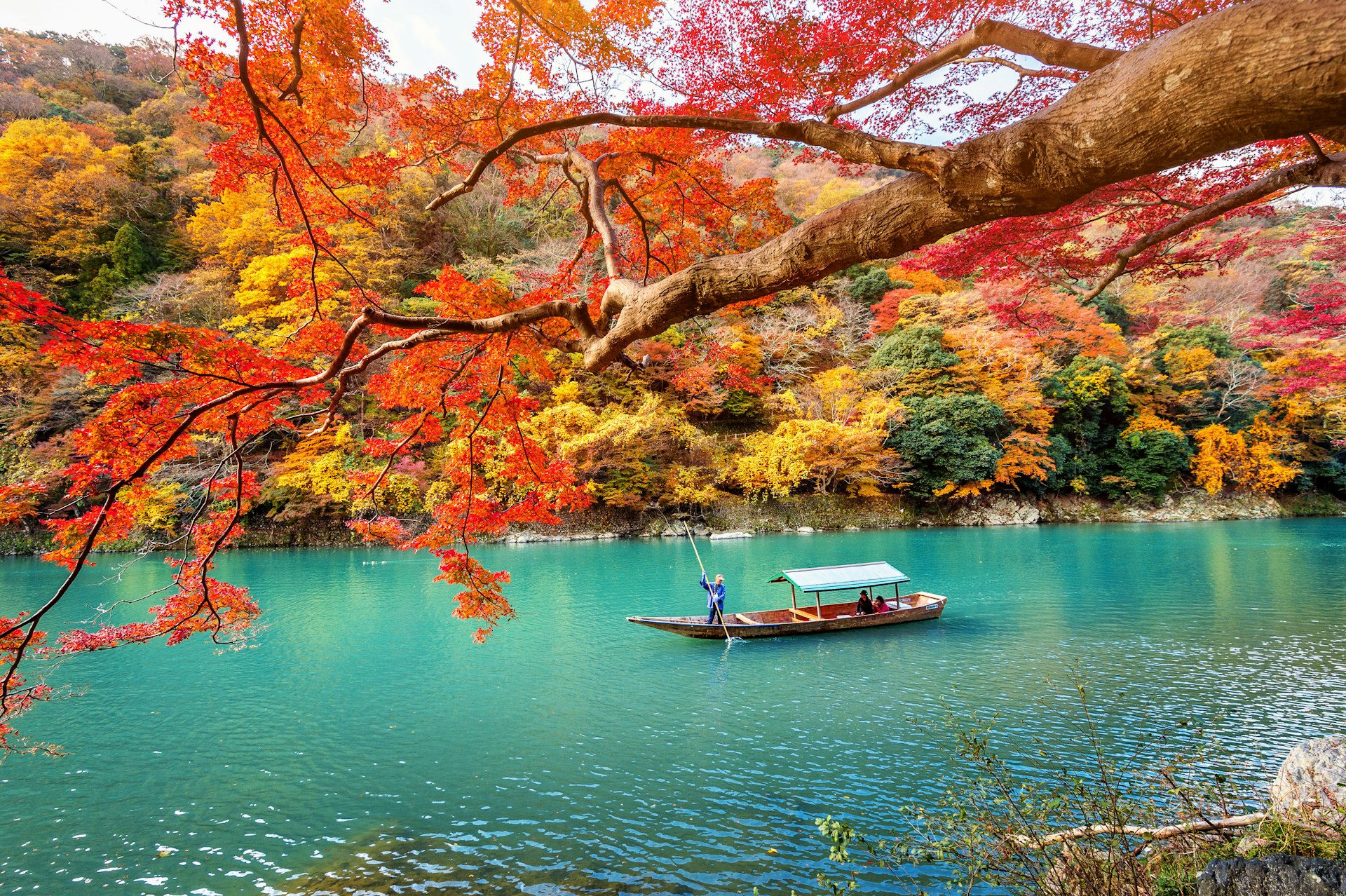
January brings calm quiet to Kyoto
Kyoto comes gently back to life after the lull of the New Year holiday (most places reopen on January 2 or 3). It’s cold, but not too cold for traveling, and the city is uncrowded.
Key events: Hatsumōde, Tōshiya
February is the time to see temples in the snow
It’s still cold and quiet in February, and snow is possible in the city (but usually melts by noon). The mountains to the north may be covered in snow all month. Get up early for photo ops of temples dusted with snow.
Key events: Setsubun Matsuri
March sees plum blossoms give way to cherry blossoms
By March, Kyoto is beginning to warm up. Plum trees usually bloom in mid-March, and the cherry blossoms normally start to emerge by month's end, drawing huge crowds. If you haven't booked months ahead, you'll struggle to find accommodations.
Key events: Higashiyama Hanatouro illuminations, plum blossom viewing
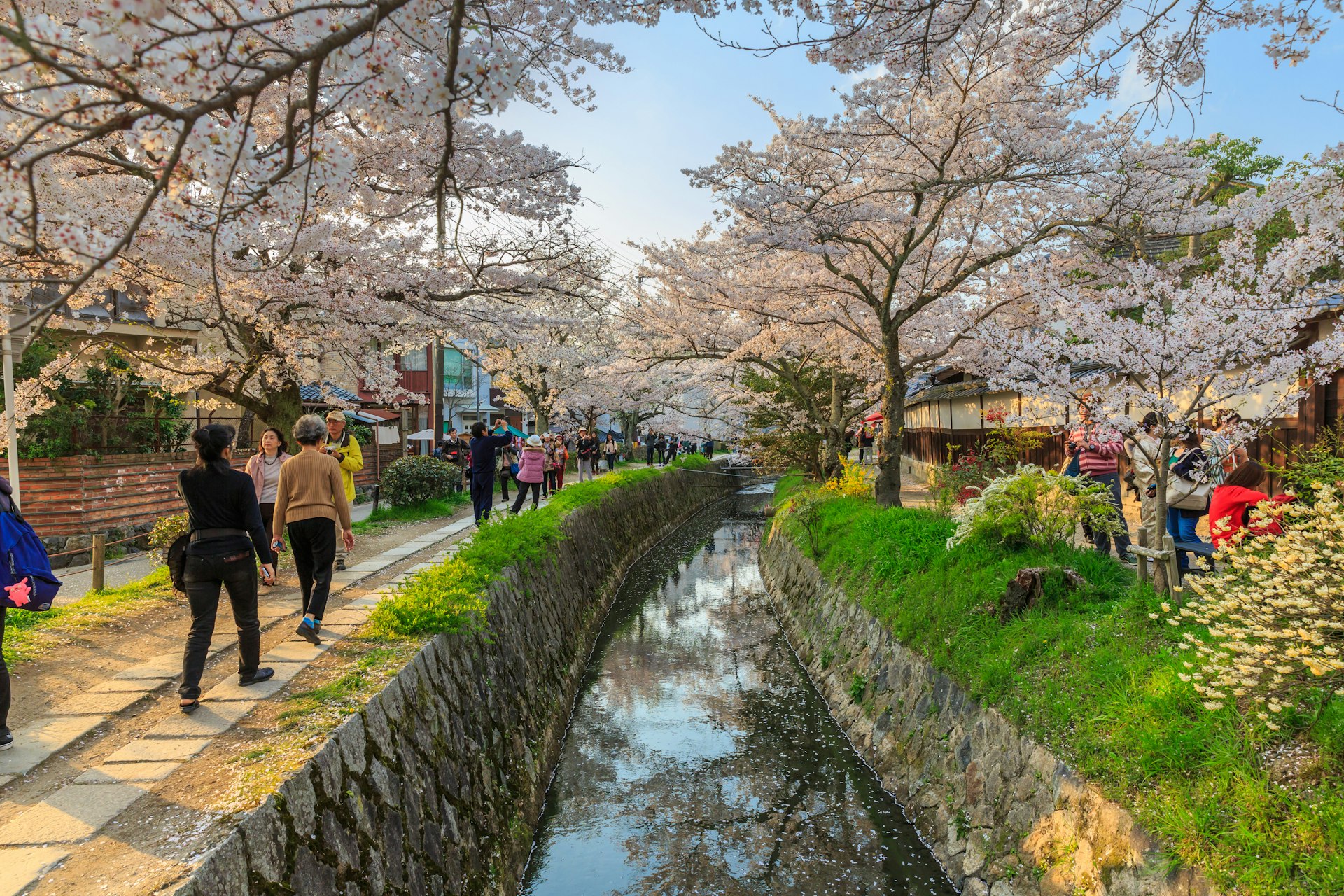
April is the peak month for cherry blossom viewing
Spring is in full swing by April, although mornings and evenings can still be chilly. The cherry blossoms usually peak in early April, which means thick crowds in all sightseeing districts of Kyoto and heavy demand for accommodations.
Key events: Cherry blossom viewing (hanami)
May sees smaller crowds and warmer temperatures
May is one of the best months to visit Kyoto. It’s warm and sunny, and the blossoms are still blooming. Golden Week holidays (April 29 to May 5) bring huge numbers of domestic tourists, so book accommodations and transport well in advance.
Key events: Yabusame at Shimogamo-jinja, Aoi Matsuri (Hollyhock Festival), Golden Week Holidays
June is calm and comfortable, with occasional showers
June is a lovely time to visit Kyoto: it’s warm but not sweltering, and the new green leaves decorating the trees are truly beautiful. However, it’s also the wettest month, so expect occasional downpours.
Key events: Takigi Nō
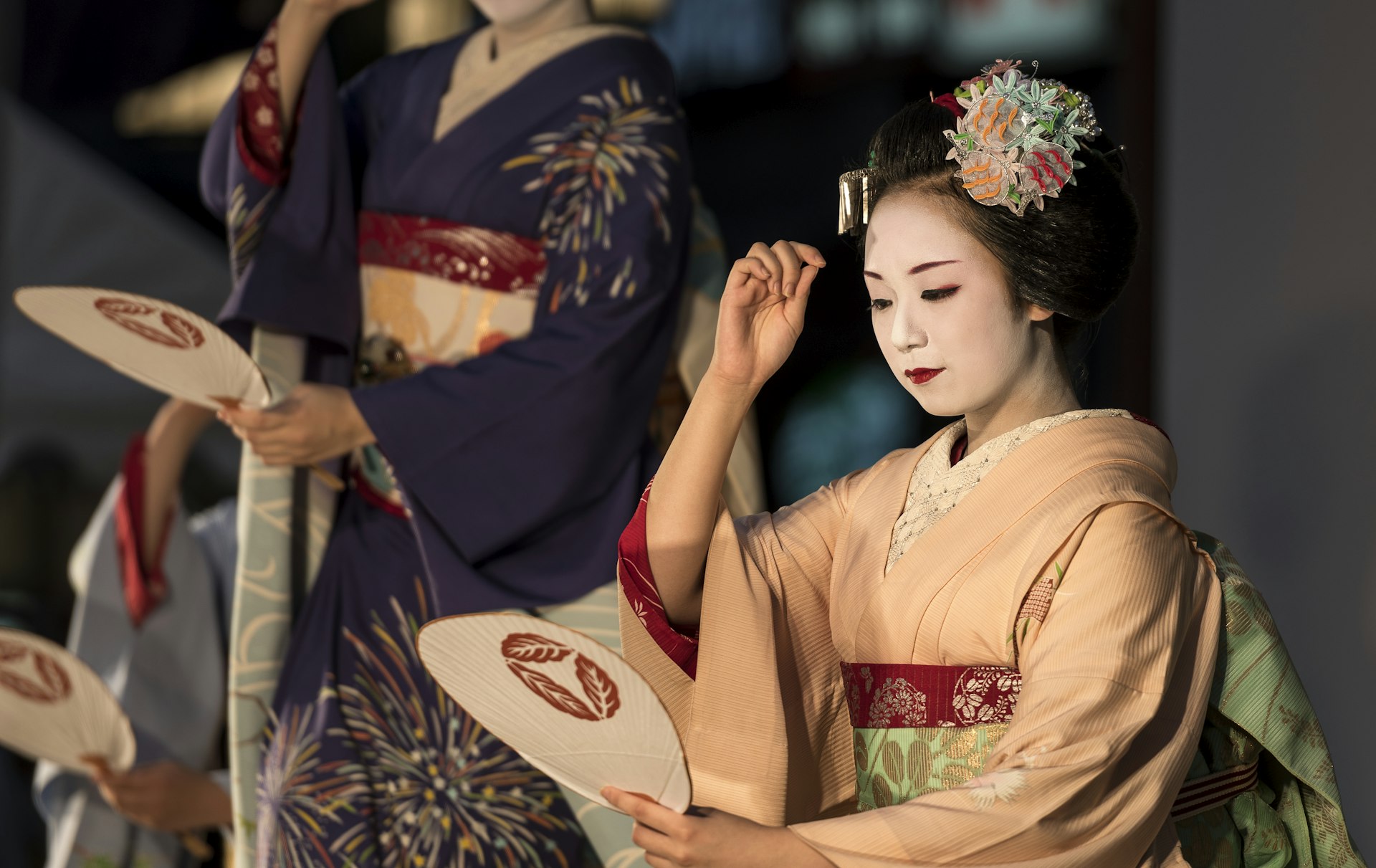
July brings the heat – carry a fan!
When the rainy season ends in late June or early July, the heat cranks up, and it can be very hot and sticky in Kyoto. Still, if you don’t mind sweating a bit, it’s a fun time to be in the city as Kyoto celebrates its biggest festival, Gion Matsuri, across the entire month.
Key events: Gion Matsuri
August humidity keeps away the crowds
August is hot and humid in Kyoto, but the skies are usually clear and most tourist sites are uncrowded, except during the O-Bon holiday in mid-August – book accommodations ahead during this three-day break (and for several days either side).
Key events: Daimon-ji Gozan Okuribi, Tōki Matsuri, O-Bon
September brings a welcome drop in temperature
Sometime in mid-September, the heat breaks, cool breezes whoosh in and temperatures become very pleasant in Kyoto. Skies are generally clear, and the city is not too busy, making it a great time to explore the sights.
Key events: Karasu Zumō, Kyoto International Manga Anime Fair
October brings sunny, bright weather for sightseeing
October is one of the best months to visit Kyoto. The weather fluctuates between warm and cool, and it’s usually sunny. The leaves start changing color at the end of the month, particularly in the hills.
Key events: Jidai Matsuri, Kurama Hi Matsuri, Kyoto Experiment
November sees Kyoto blaze with fall colors
November rivals October and late spring as the best time to visit Kyoto. Skies are clear, and temperatures are pleasantly cool. Fall foliage usually peaks late in the month, and the city gets crowded.
Key events: Fall foliage (kōyō) viewing
December is quiet in Kyoto as venues close for Ōmisoka
December is cool to cold in Kyoto. The fall foliage might still be good early in the month. Most shops, museums and restaurants shut down around December 29, but transport still runs, and accommodations are open. Almost all temples and shrines stay open throughout the New Year period.
Key events: Ōmisoka

